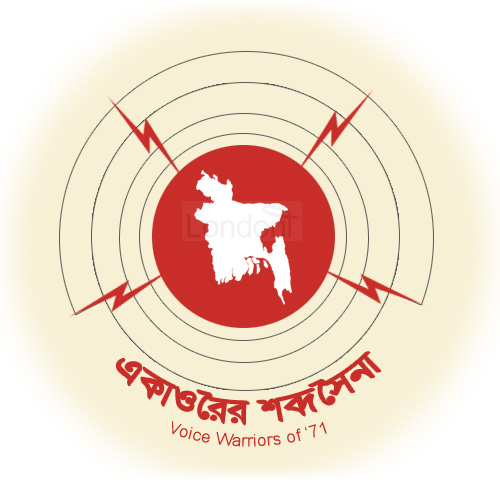
Swadhin Bangla Betar Kendra II: Daily programme
Last updated: 5 October 2017 From the section 1971 Muktijuddho
The daily programme in this phase consisted of a morning transmission between 8.30am and 9am and an afternoon session between 5pm and 7pm.
Besides the broadcast of news in English and Bengali, the following special programmes were launched for daily transmission:
- Agnishikha (The flame) - a programme for the Freedom Fighters.
- Bajra kantha (Voice of thunder) - the taped speeches of Sheikh Mujibur Rahman.
- Choroam potro (The ultimatum) - a satirical programme praising the Freedom Fighters and threatening the enemy of dire consequences if they do not surrender immediately. Presented by popular voice jockey M. R. Akhtar (Mukul).
- Darpan (Mirror) - a politically analytical programme.
- Jagarani (Awakening) - a revolutionary musical programme.
- Oikatan (Musical harmony) - a choral programme.
- Rakta Sakshar (Impression in blood) - a nationalistic, literary programme.
- Special English programme for foreign countries.
- World opinion - excerpts from different newspapers and comments of the prominent world leaders on the shadinota juddho.
The morning broadcast started every day with recitation from the Qur'an, and recitation from the Gita (for Hindus) and Tripitaka (for Buddhists) twice a week.
At the beginning, our biggest rival was Pakistan Radio. We used to broadcast programmes in Bangla, English and Urdu. Dramas, musical programmes and talk shows were parts of the regular transmission. There was also Charampatra by M. R. Akhtar Mukul. We used to air special programmes on special days. Within a very short time, the radio station gained a huge audience. At one point, we even surpassed Akashbani in the number of listeners.
Desh-premik and shadinotar gaan
Songs of revolution that Bengalis had never heard before became part of their existence through Swadhin Bangla Betar Kendra. The songs would keep the spirit of the nation high and fuel the fire in the Muktijuddha's heart to surge forward and fight the injustice.
Chorompotro & Jallader Darbar
Two of the most popular programmes in the Swadhin Bangla Betar Kendra was 'Chorompotro' (the ultimate mail or ultimatum) and 'Jallader Darbar' (Executioner's chamber).
Jallader Darbar, written by Kalyan Mitra, was a satiric serial exposing the inhuman and beastly nature of General Yahya Khan who was depicted in it as 'Kella Fateh Khan'. Raju Ahmed directed and acted in the main role. Though a number of plays were also very popular, for example 'Mrityuheen Pran' produced by Syed Hasan Imam, Jallader Darbar was the most admired radio play of that time.
But the most popular programme was Chorompotro. It was a Kathika (satirical composition) planned by Abdul Mannan, a Member of National Assembly, and written, directed and narrated by M. R. Akhtar Mukul. It was written in typical Dhaka dialect and Mukul himself used to read it out. He used to present the exploits of the freedom fighters, using various Bengali dialects in a witty funny voice, all of which were intended to utterly mock the Pakistani army. Mukul described the uncomfortable position of Pakistani militants and victorious position of the Bangladeshi fighters. He caricatured the positions of the military President of Pakistan Yahya Khan, the members of his government, his civilian allies like Zulfiqar Ali Bhutto, his governors in occupied Bangladesh, army generals and soldiers as well as Pakistan's international allies including the USA and China. His language was full of verbal insults. In his offensive language, he used various [Bangla] dialects of Bangladesh as well as sangs and proverbs, folk stories and jokes.
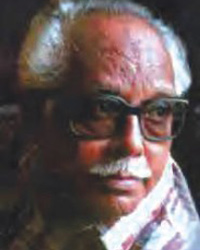 M. R. Akthar Mukul (2004)
M. R. Akthar Mukul (2004)  Abdul Mannan ()
Abdul Mannan ()  Raju Ahmed ()
Raju Ahmed () 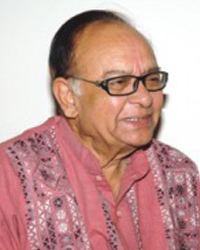 Syed Hasan Imam ()
Syed Hasan Imam ()
The programme proved to be immensely popular. It exemplified the spirit of the true Bengali - fighting adversity with a high nationalist passion whilst still maintaining the down-to-earth nature and exceptional sense of humour. It spoke to them in their tongue, their language, and their toen. The programme helped keep the morale of the freedom fighters, Bengali refugees in India, and general population in both occupied Bangladesh and West Bengal high. It made the people of Bangladesh believe that even the Pakistani military with all its superior armoury was not invincible.
Chorompotro was ground-breaking - it had sense of humour and style that was unheard in Bangladesh before. It is said that hundreds of civilians became soldiers just being inspired by this programme.
My father had a transferable job so we traveled all over Bangladesh. I knew many cities and places and some I could recall in great detail. So when I mentioned that tree, that lane in some distant town in my script, people would be shocked. How did he know? He must have been here. People would trust me more.
I lived in the old city for long and knew the culture. The sense of neighbourhood and social camaraderie is high. In almost every para there was a Chokku Miah and a Meramot Mia - and I just transplanted them into my script. They were part of my cultural ambience and had a universality that touched everyone.
Between 25 May and 16 December 1971 Mukul broadcast the feature in 117 episodes in 206 days. And like all the other broadcasters within Swadhin Bangla Betar Kendra, Mukul's true identity remained anonymous until the final episode and the final words where he disclosed his name.
Unfortunately, Chorompotra turned out not to be popular with the authorities in Bangladesh after the liberation and its tapes and scripts stored in vault of the state radio station were burnt after change of government in 1975. It was only in 2000 that Chorompotro was printed and published as a collection by Mukul himself.
Day in and day out, with rarely any absence, Mukul churned out words and thoughts which not only demonstrated his rapidly evolving thoughts on the war but also provided Bengalis with renewed ideas about the need to push the enemy into the sea. Charampatra was essentially a one-act, one-man play where that one man became many men, indeed turned into so many freedom fighters.
All these years after that tragically beautiful war, the image of Chhokku Mia, that inimitable voice of freedom and wit Mukul forged in Charampatra, remains part of the Bengali historical consciousness. Chhokku Mia's locale is old Dhaka; his dialect is old Dhaka and yet in his perceptions of the war it is an entire nation that speaks. Ek gada peek phalaya Chhokku Mia koilo... that was how the young man came to us. Indeed, with his inflections of language, with his deliberate attempt to be condescending to the Pakistanis, Mukul became Chhokku Mia. Once he did that, he brought into the character all the sarcasm, all the ridicule he could muster against the mighty and the wicked in Pakistan. Yahya Khan was endlessly the inebriated dictator presiding over the genocide of a nation; Zulfiqar Ali Bhutto could not but be Larkana'r nawab, Ehia'r ek gelaasher dosto, pyaare Julfikar Ali Buttu.
And Pakistan's soldiers? The smallest of sounds set them scattering, with many of them ruining their trousers in the process. Okko-re bashonti rong oiya gelo gaa, as Chhokku Mia would report gleefully, with that well aimed spitting out of the paaner peek. Speaking of sounds, Mukul sent his audience rolling into waves of laughter with the deep-throated dhaaeen, ostensibly to imitate the sound of a bomb explosion. It was nothing of the sort, but it did go a long way to put across to us the gradually rising fear among the Pakistanis of the Muktis, as they called them in their various states of nervousness."
Fundraising event brings cream of Bollywood - Lata Mangeshkar, Mohd. Rafi, Kishore Kumar, Asha Bhonsle, Manna Dey & co
Artistes from the station also held programmes in different parts of India to bring greater awareness and support for the Bangladeshi cause. Fundraising concerts were held across India and many big names of the Indian music industry came forward voluntarily and participated. One such concert was held in Sri Shanmukhananda Hall in Mumbai (then Bombay), the largest auditorium in India. It featured performance by musical powerhouses such Lata Mangeshkar, Asha Bhonsle, Kishore Kumar, Hemanta, Mohammad Rafi and Manna Dey and others alongside Bangladeshi artist. It was a two-day event and Salil Chowdhury was the music director for the programme.
We are grateful to all the Indian artistes and singers who helped us in the time of our great need those days.
...I remember Indian women taking off their gold bangles and donating them to us.
We gave Tajuddin Ahmed Tk 19 lac that was collected from concerts in India. When ever I remember this, I feel proud of myself and everyone involved with that event.
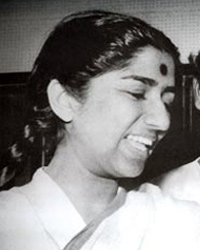 Lata Mangeshkar ()
Lata Mangeshkar () 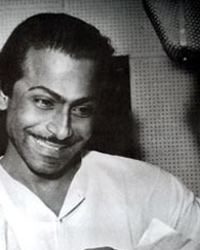 Salil Chowdhury ()
Salil Chowdhury () 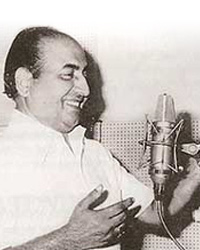 Mohammad Rafi ()
Mohammad Rafi () 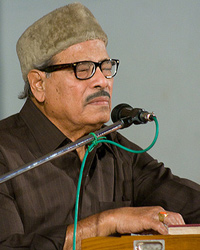 Manna Dey ()
Manna Dey () 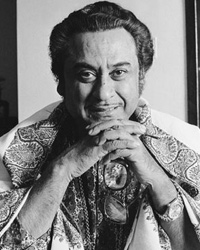 Kishore Kumar ()
Kishore Kumar () 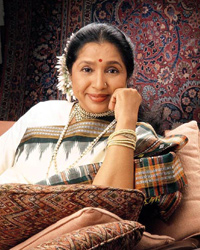 Asha Bhonsle ()
Asha Bhonsle () 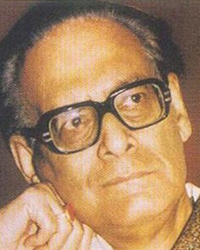 Hemanta ()
Hemanta ()
Renamed to 'Bangladesh Betar'
Swadhin Bangla Betar Kendra was renamed to 'Bangladesh Betar' (Bangladesh Radio) on 6 December 1971 when India gave formal recognition to independent Bangladesh and its provisional government. After achieveing victory 10 days later, the Bangladesh government moved from Kolkata to Dhaka on 22 December 1971 and Bangladesh Betar started broadcasting in independent Bangladesh on the same day.
